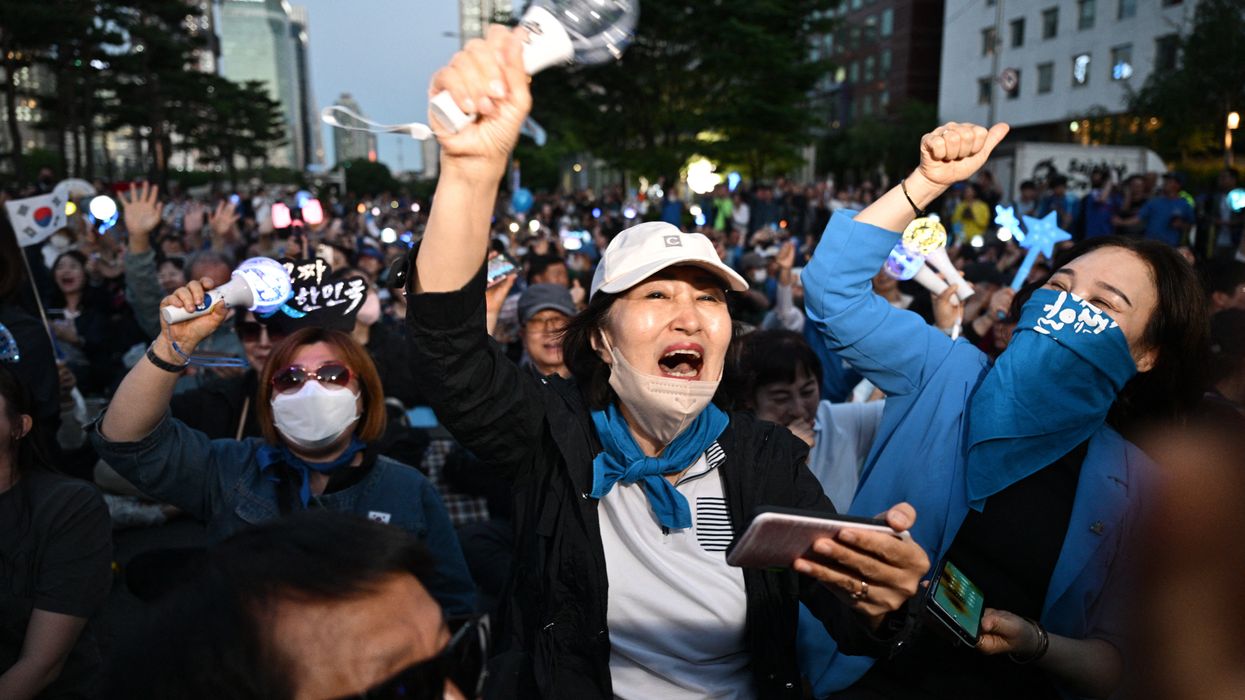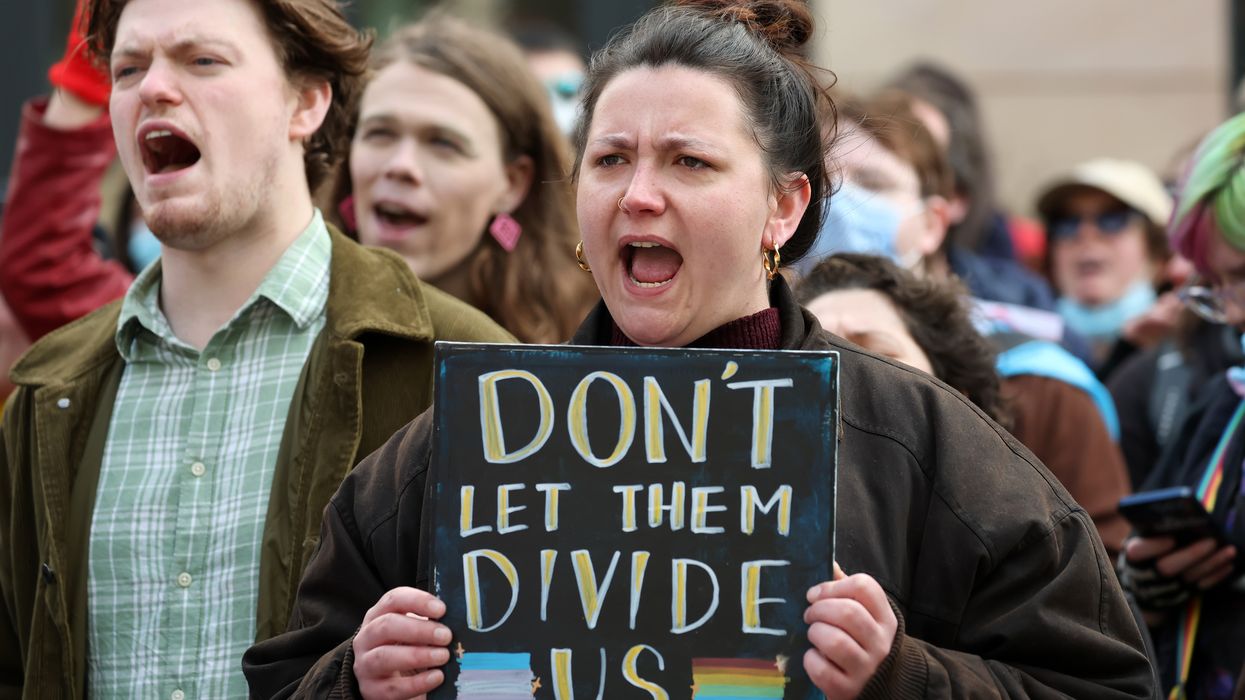This New Dawn for Korean Democracy Must Center Feminist Peace
As the rising far-right threatens peace, stability, and democracy around the world, Lee Jae-myung and South Korea’s leadership must prioritize and support women’s leadership and peace building.
This week marks a new dawn for democracy in South Korea. South Koreans have successfully held a snap election, electing Lee Jae-myung as their new president.
The Democratic Party leader Lee Jae-myung represents a marked shift from former President Yoon Suk Yeol whose surprise martial law declaration last December beset the country with weeks of “insurrection insomnia.” Yoon’s actions upended politics in South Korea with multiple leaders cycled through office in the span of a few weeks. Yoon also fanned the flames of a far right surge in South Korea and exacerbated tensions with North Korea.
In contrast, Lee Jae-myung has pushed for a new approach to North Korea, calling for pragmatic diplomacy and a gradual shift toward peace. Lee’s election offers an opening not only for peace but also for restoring democracy and advancing women’s rights in the country.
As feminist peace activists working in international solidarity, we know that all Korean people deserve to reunite with their family members and live in lands free from landmines and pollution and violence from military bases.
While we celebrate this new dawn for South Korea’s democracy and successful election of a progressive president, feminists recognize that, for the first time in 18 years, none of South Korea’s presidential candidates in this snap election were women, and none—including Lee—placed gender equality at the forefront of their campaigns. Indeed, Lee largely avoided any explicit discussion of gender equality, despite the leadership of young women in ousting Yoon.
If Lee is really to mark a new start to South Korea’s democracy, he must uplift women’s leadership and peace building. No democracy can thrive under toxic patriarchy and militarism. Policies rooted in militarism often shift resources away from policy areas that are critical to the advancement of women and girls. Attacks on democracy and the expansion of militarism threaten women’s rights, and women are more likely to be exposed to gender-based violence during wartime.
That is why, in the week leading up to the snap election, and on the 10-year anniversary of Women Cross DMZ’s founding crossing, I brought a delegation of feminist delegates to march with hundreds of Korean and international women outside the largest overseas U.S. military base in Pyeongtaek, South Korea to call for an end to the 75-year-old Korean War.
Our international delegation included diasporic peace leaders, including Afghan American, Indigenous, Korean American, and South Asian feminists—a powerful act of solidarity recognizing that the ongoing Korean War is a global war. (The U.S.-led United Nations command in Korea is a multinational force with combat forces and contributions from over 20 countries worldwide.)
Our solidarity trek was more timely than ever—and showed how war, militarism, democracy, and women’s rights are deeply intertwined.
Many people don’t know that the Korean War never technically ended but was only halted by the signing of an armistice in 1953. This unresolved state of war has not only kept Korean families separated but has resulted in the buildup of troops and weaponry on both sides of the Demilitarized Zone that separates North and South Korea, ready to reengage in conflict at a moment’s notice. Militarism, war, and division of the peninsula have especially impacted women, who have been leading calls for peace.
The state of war has also shaped South Korean politics throughout history, threatening democracy. Politicians—often backed by the United States—have used the Korean War as justification to maintain power and squash dissent, labeling those who call for peace and democracy “communists” and threats to national security. In December, former President Yoon, who rose to power by courting men who are anti-feminist, declared martial law, accusing the Democratic Party of conducting “anti-state activities” and collaborating with “North Korean communists” to destroy the country. Later, it was revealed that Yoon attempted to bait North Korea into conflict as a pretext for his martial law declaration.
Yoon’s actions were exceptionally brazen, but he was also part of a long line of South Korean authoritarian militaristic leaders. Our international delegation bore witness to this legacy, visiting major sites of South Korean and U.S. militarism: the DMZ, the Civilian Control Zone, Pyeongtaek, Dongducheon, Jeju.
In each place, we learned about the deep scars stemming from decades of war and militarism—including the struggles of Daechuri farmers horrifically brutalized and displaced by state authorities during the expansion of U.S. military base Camp Humphreys in Pyeongtaek. We also met with Gangjeong villagers protesting the South Korean naval base destroying their ways of life, Dongducheon organizers preventing the destruction of “Monkey House,” and sex worker organizers in Yongjugol fighting for their livelihoods and homes.
While each struggle differed, what was striking was how at each place, people described that state authorities spent millions policing them, surveilling them, wiping out histories, and destroying their homes. They remarked that instead, government officials could have just as easily spent those resources and time on providing social services, healthcare, recognition of history—all the things that actually keep us all safe and secure.
As feminist peace activists working in international solidarity, we know that all Korean people deserve to reunite with their family members and live in lands free from landmines and pollution and violence from military bases.
Given the current attacks on democracy in the United States and across the globe, transnational acts of solidarity are more important than ever. The next generation of South Korean feminist activists say that political leaders must recognize and honor the diversity of the population—including across gender identity, sexual orientation, age, disability, and racial backgrounds. It is time to imagine a “new democracy”—“not going back to the democracy we used to have.”
Women play crucial roles in changing society from one rooted in militarism to one rooted in peace. Research shows that when women are involved in peace processes, outcomes are more likely to be reached and to last. As the rising far-right threatens peace, stability, and democracy around the world, Lee Jae-myung and South Korea’s leadership must prioritize and support women’s leadership in building sustainable peace.


